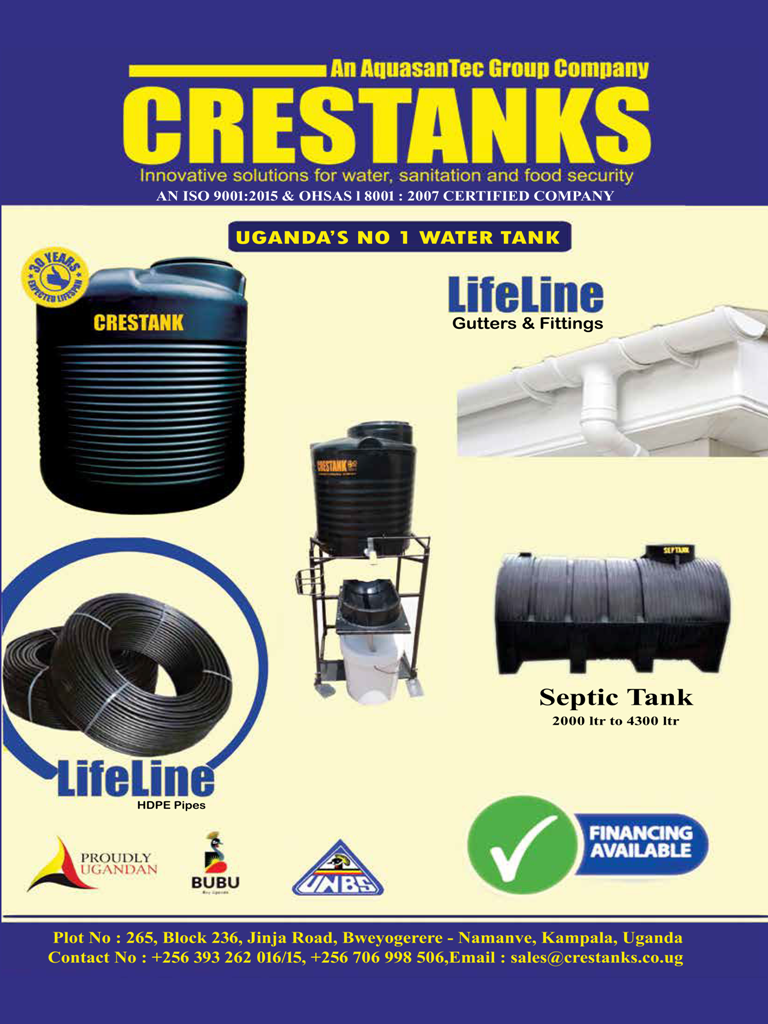As the country joined the rest of the world to celebrate Global Hand washing day (GH Day) on 15 October 2019, under the theme, “Clean Hands for All”, Napak district which hosted national hand washing celebration,
irrespective of its past hostility has registered strides in hand washing campaign and water coverage.
Once relegated as place with no feats, the ongoing efforts by government and none government organization are bearing fruits. This success on sanitation aspects are today heard and backed with statistics, in a district that was barely receptive to development, thanks to the disarmament process.
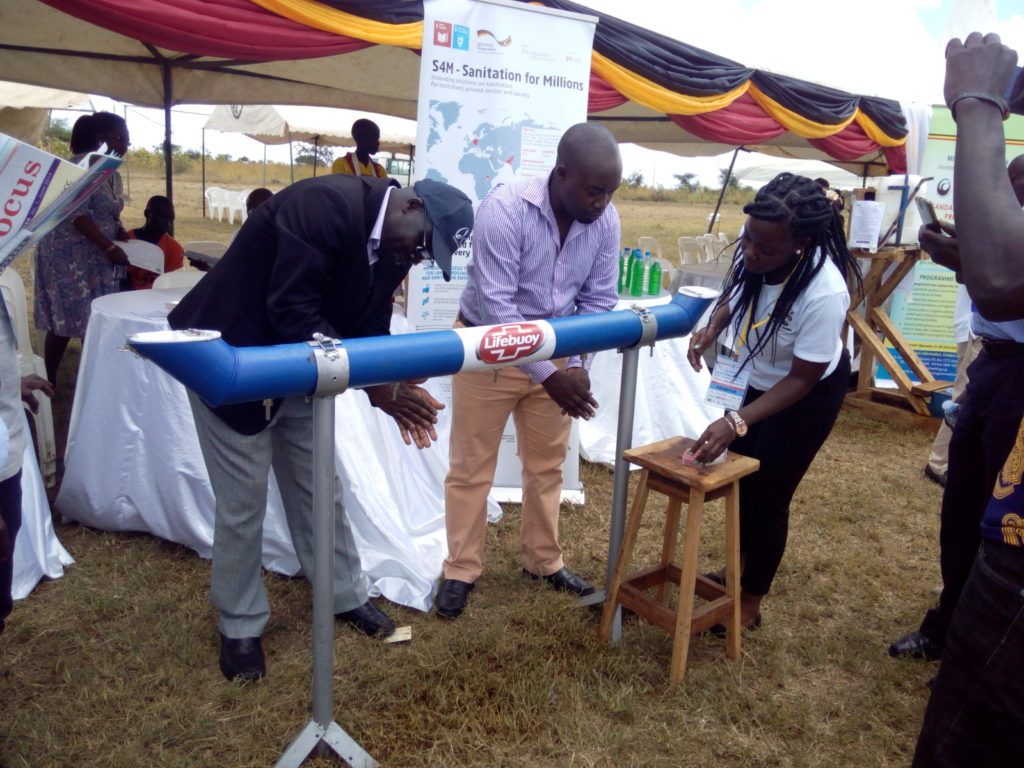
The life here before 2001-2003 disarmament process was that anchored on pastoralism, with virtually no permanent place to call home, as result matters of sanitation were under looked. Today with a sense of tranquility, matters of development, notwithstanding health in a broader spectrum are taking root.
The determination among the Napak authorities to increase awareness on importance of hand washing with soap as an effective, affordable way to prevent diseases and save lives is very much lurid, visible among most
primary schools, which by design have been improvised with complete set of sanitary facilities.
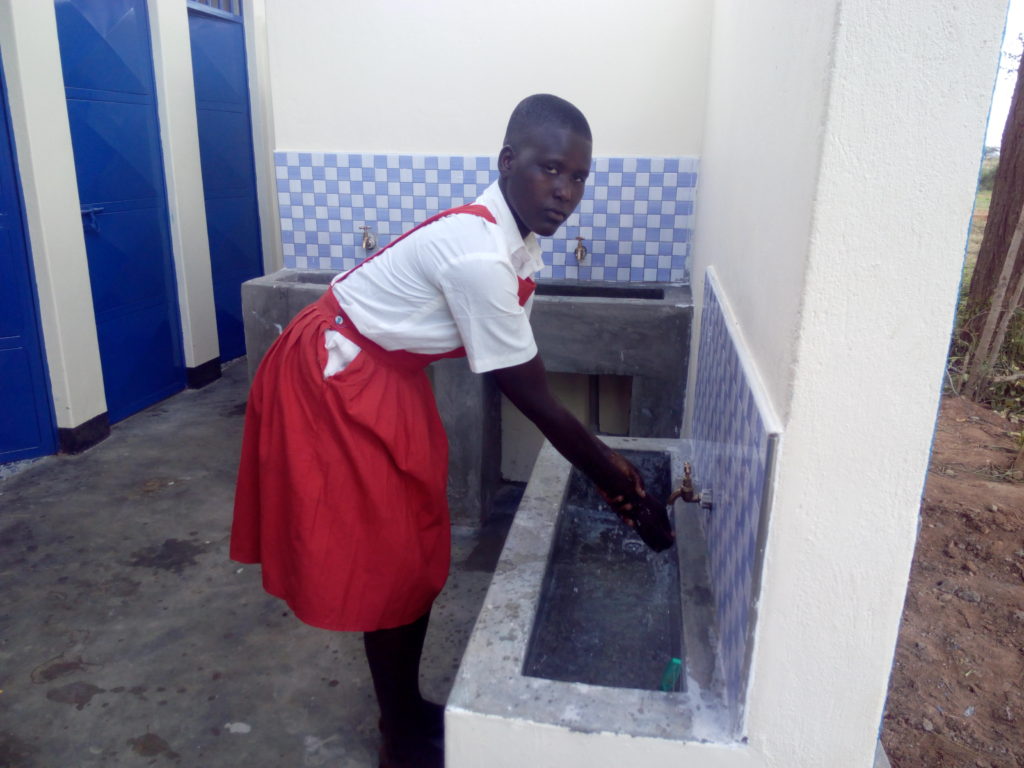
Sanitation takes priority at schools
At Matany primary school, one among the selected five schools, benefiting from UNICEF and Korea International Cooperation Agency ( KOICA) projects, stands modern and fancy water and sanitary facilities valued at over USH
400M .
Health authorities here, attest that with such sanitary facilities at schools, the hand wash campaigns at community level are becoming much easier, than they were a few years ago, when government launched sanitary campaign to free its populace of water borne diseases.
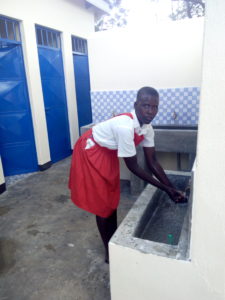
In agreement of this, is, Isaiah Loput, Ag Senior Health inspector for Napak district local government, he says for every stride made in improving sanitation at schools, is a stride registered in the local communities.
“These young children, while out of school, become our ambassadors on the wash campaigns, I can attest to you as a district, this primary children have been of help in strengthening our community ordinances in implementing
community sanitary programmes, once home they cause change that they have learnt from school,” says the health inspector.
Based on the ongoing intervention in place, our pit latrine coverage has registered positive strides, with now the coverage being at 30.5% as opposed to 11% as of 2011.
This success though not above the needed average, is worth celebrating, the numbers of pit latrines a cross the district both at the Manyatta level and the mushrooming urban centres indicate that the campaign is being received with positivity.
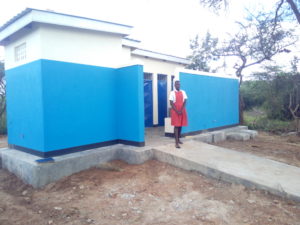
For hand washing campaign, Loput adds Napak has registered 12% against 36% at the national level.
Mr Loput says among other schools that have been improvised with modern fancy sanitary facilities with 24 hour running water facilities are, Lodoi, Nakachelet, Iriri and Kangole primary school.
The officer says all this adds up to up the success seen in the communities that these schools are located in.
Water department weighs in
According to Paul Aliau, assistant district water officer for Napak district local government, the hand washing campaign is where it is today because of the achievements being scored by the district water department.
The old scenes where people would be seen drawing water from dirty ponds are slowly being phased out, he says, adding this has been so, because the access to water has grown from 47% from July 2010 to 84% as of 2019.
“This is as result of interventions from the mother ministry of water and interventions from development partners like UNICEF,” Aliau explains.
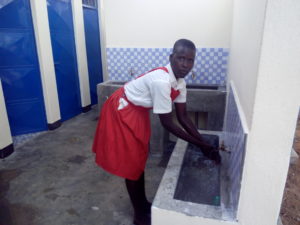
With now safe water coverage at 60% above average in Napak, the water officer, adds the outbreak of water borne diseases is virtually under control. He adds that the water sources in the district take form of boreholes, which account for 90% of the water sources; others are valley dams, water ponds and windmill water sources, with piped water also taking shape especially in urban centres.
“Our functionality of water sources is at 74% which is also way far above average,” the official states.
Budget for water sources
On average, each annual year, our budget for boreholes is 6-7, this financial year we have a budget of 6 boreholes, which are targeted for at the resettlement areas along the greenbelt areas.
As we strive for more success in the department of water, we are looking at achieving 90% water coverage across the district, adds Aliau, a vision that the area LC5 district chairperson, Joseph Lomonyang is in support of .
The district LC5 chairperson says, to strengthen the gains registered, they are to launch a compendium of ordinances in areas of hand washing, and maintain the 556water sources that the locals across the district rely on.
Hon Mary Goretti K.Kitutu, state minister for water and environment says to have the gains maintained, the district officials in Napak need to execute a tree planting campaign, reasoning that the safety of water sources is
much dependent on the green cover, less that, the feats being registered, will be derailed.
Hand washing campaign is everyone’s role, “It is our appeal as ministry to have all this young children helped to be the ambassadors in the villages on hand washing sanitary campaign,” the minister hints.
Ministry to recruit 60,000 volunteer ambassadors on hand washing
Meanwhile, Eng, Joseph Oriono Eyatu, commissioner rural water supply and sanitation department at ministry of water and environment, under directorate of water development, the mission is to have over 60,000
ambassadors across the country.
“We envision having at least in every village, 2 ambassadors on hand washing campaign,” the commissioner, adds, saying when the campaign is embraced, it saves a lot much of the money that is used in treatment of the
water borne diseases.
Though habits take long to change, Commissioner Eyatu, says the small slight increase on hand washing campaign from wobbling 14% as of 2007 to 36% as of 2019, is an achievement we ought to collectively improve on.
He reasons, that once the spirit of hand washing using soap is cultivated in all communities, it directly translates to good economic growth because the money allocated to treatment of water borne diseases, can be invested
in other sectors.
Mr Eyatu says, though the picture on hand washing, pit latrine coverage in Karamoja as region still remains wanting with Napak leading at 12% hand washing and 30.5% pit latrine coverage, other districts in the region have a long way to go.













